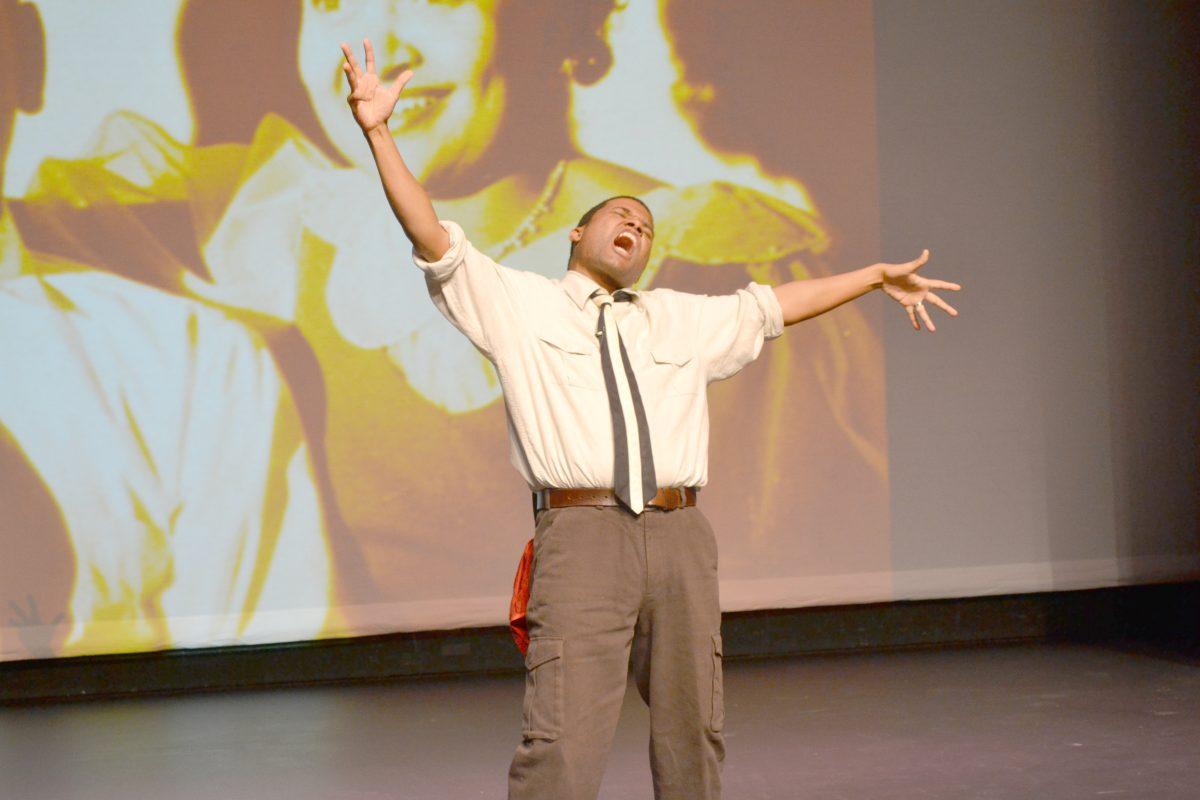Titmus Theatre played host to “Dar He: The Story of Emmett Till,” a one-man play put on by Mike Wiley productions, Wednesday night.
The play was the conclusion to a three day conference, “When Innocence Constitutes the Crime: Race, Memory and Identity in the South,” which brought together scholars versed in the topics of slavery and Jim Crow Laws.
The conference placed special emphasis on the case of Emmett Till, a 14-year-old African-American boy who was murdered in 1955. The case is often considered by historians to be a pivotal event motivating the Civil Rights Movement.
Wiley’s works span the stories of fugitive slaves, sports figures and freedom fighters, the triumph of the common man and more. His works are primarily one-man shows, and in this particular work Wiley portrayed dozens of characters — old and young, men and women, African American and white —over the course of the night.
Throughout the play, Wiley transitioned from character to character, easing between the roles of Emmett Till, his alleged killers Roy Bryant and his half-brother J.W. Miliam, as well as casting the women’s roles of Carolyn Bryant, and most importantly, Till’s mother, Mamie Till.
The simplicity of Wiley’s performance was a sight in itself, as the only props he brought onto stage were a simple wooden chair and a straw hat. Other then these props, Wiley used expressions, hand movements, and his voice to convene the dialogue of the play to the audience.
After the play, Wiley engaged in a question and answer session with the audience, responding to questions on what his mission as a one-man playwright was, and how he hoped to use his work to address race and racial discrimination in America.
“If Joe Schmo comes in here and watches a performance, and doesn’t see himself or herself on stage there’s no truth there,” Wiley said. “They can’t change their life, they can’t change their friend’s life. That’s not fair. What’s fair is to play them with as much truth as possible.”
Micah Khater, a sophomore in French and History, was the coordinator of the conference and felt the performance by Wiley addressed a critical point in time in American history.
“This play marries scholarship with public outreach and public history, and that’s what I really wanted this conference to be,” Khater said. “This is not just another academic conference where we sit down and talk about these papers. It is about reaching different demographics across campus, and people see how interdisciplinary society really is.”
“There are three truths, your truth, my truth, and the truth,” Wiley said, as he explained to the audience that although he does intend to use his acting to teach the audience something about race, the education is not complete until citizens go out and act on behalf of race equality and fight against discrimination.





